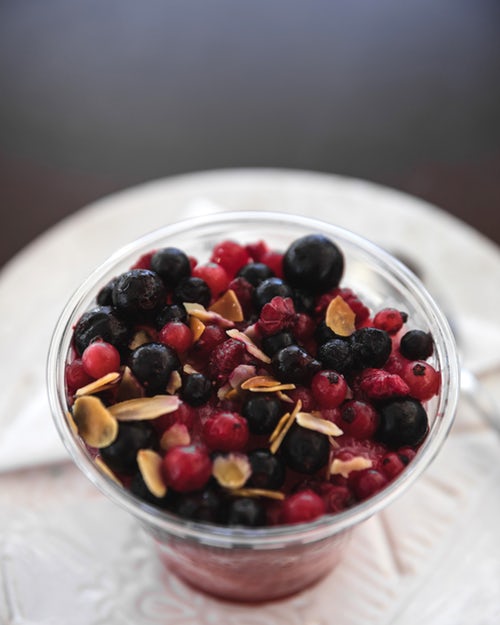Sugar has been a hot topic in the world of nutrition the last few years. Maybe I should rephrase that – the evils of sugar have been the topic. Too much sugar in the diet has been linked to certain chronic diseases, including cancer, type 2 diabetes, heart disease and obesity. It’s been linked to aging, too – accelerating the arrival of wrinkles, and dehydrating the skin. And then there’s cavities……
Recent research shows that the average American consumes almost 152 pounds of sugar in one year. If you can’t wrap your mind around that number, this would equal approximately 6 cups of sugar per week.

To be clear, the culprit here is not the natural sugars found in fruits and vegetables. What is important to steer clear of are the added sugars found in many processed foods, and things like soft drinks and sugary desserts. Not only do these often contain unhealthy amounts of added sugar, they also offer very little to nothing in the way of nutritional value.
How much sugar is too much? And how do we even begin to monitor our intake and make changes?
The American Heart Association recommends that men should consume no more than 37.5 grams of sugar per day, and women 25 grams. To give you an idea of how many grams of sugar are contained in everyday foods and beverages, here’s a sampling of averages:
A 12 oz can of soda averages 33 grams; A tablespoon of ketchup – 4 grams; a 5-ounce serving of fruit on the bottom yogurt – 15 grams; 8 oz of orange juice – 21 grams; a one-cup serving of granola – 27 grams.
Like your coffee sweetened with a bit of sugar? One teaspoon will cost you 4 grams.
It’s easy to see how sugar intake can add up quickly, and exceed what’s healthy in the space of a day.
If healthy eating is your goal, cutting back on refined sugars in your daily diet should be part of your plan. Here are a few suggestions on how you can cut back on added sugars in the foods you eat.
- Number 1 Rule – Read Labels. Get familiar with how much added sugar is in your favorite foods. Beware of foods that contain ingredients like high fructose corn syrup, maltose, sucrose, dextrose, glucose, or fruit juice concentrates, and either avoid or cut back on them.
- If you’re a lover of soft drinks or cola, know that just one can easily contain your entire allowance of sugar for the day. Even beverages such as sports drinks, fruit drinks, or energy drinks, can contain high amounts of sugar. Start to reduce your intake by keeping bottled water with you, or try sparkling water with a squeeze of lemon. It may take a while to wean yourself off the soda habit by drinking water and substituting other beverages, but you can do it. An added bonus is you’ll feel better and may lose weight.
- Avoid sugary desserts and candies. Most add little or nothing in the way of nutritional value and can leave you feeling tired and craving more. Try fresh or baked fruit, Greek yogurt with fresh fruit, or dark chocolate which contains less sugar than other types of chocolate.
- Try natural sweeteners and sugar alternatives. Sugar has been shown to have addictive properties that can produce cravings and even cause withdrawal symptoms. There are new and better sugar alternatives on the market these days such as stevia and erythritol (brand name Swerve) that can be used not only for flavoring but also cooking and baking.
- Eat foods in as close to their natural state as possible. A diet containing fruits, vegetables, whole grains, meat and seafood, cheese, and nuts is going to be free of added sugar and other additives. When you do choose prepared food, read labels and know that the higher sugar (by any of its names) is on the ingredient list, the greater amount of sugar it contains.
- Make sure you get the sleep you need. We all know how important sleep is, but did you know that research has shown that not getting enough sleep is linked to increased appetite, especially sweet and salty foods, contributing to poor eating habits and weight gain? Getting enough sleep can help you maintain a healthy weight and nutrition.
Having eliminated refined sugar from my diet years ago, I can testify to the difference it has made in how I feel, my energy level, and in keeping my weight stable. If you’re in the process of making healthy dietary changes, I can’t recommend it highly enough. Thoughts? Comment on my blog or email me at suzanne@evergreenlifeandwellness.com.